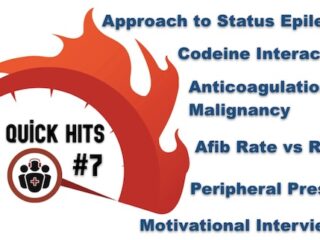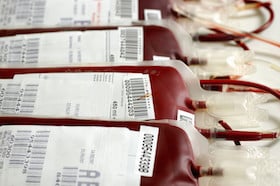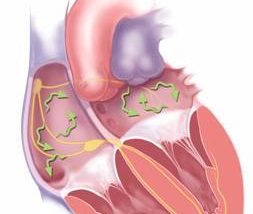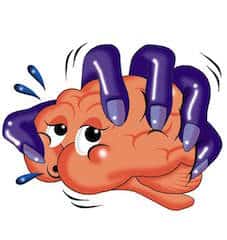EM Quick Hits 7 Approach to Status Epilepticus, Codeine Interactions, Anticoagulation in Malignancy, Atrial Fibrillation Rate vs Rhythm Control, Peripheral Vasopressors, Motivational Interviewing
Anand Swaminathan on a simple approach to status epilepticus, David Juurlink on codeine and tramadol interactions: nasty drugs with nastier drug interactions, Brit Long on DOACS in patients with malignancy: which patient's with cancer can be safely prescribed DOACs? Ian Stiell on atrial fibrillation rate vs rhythm control controversy, Justin Morgenstern on peripheral vasopressors: safe or unsafe? Michelle Klaiman, Taryn Lloyd on motivational interviewing that makes a difference to patient's lives...







